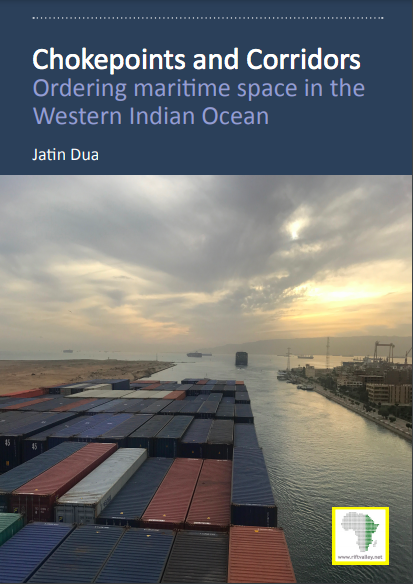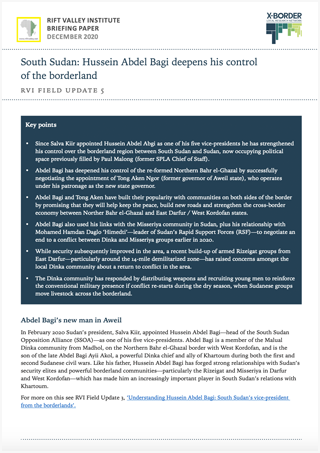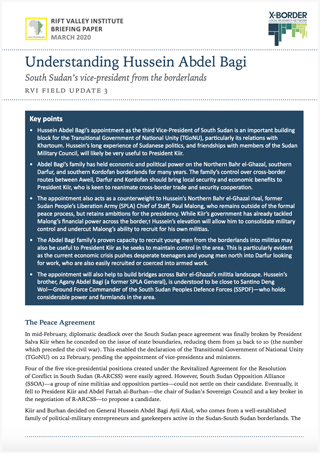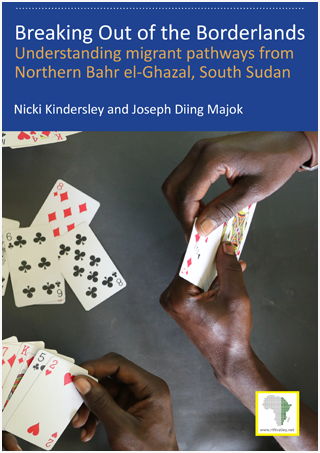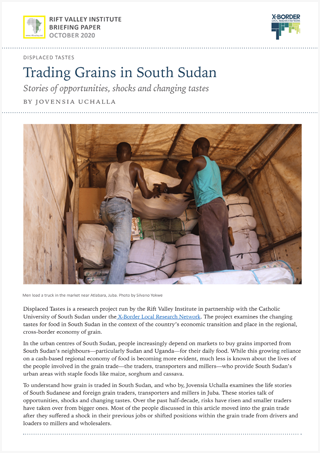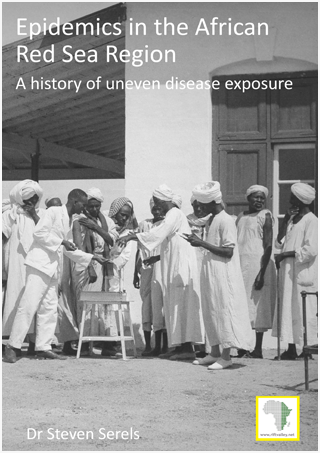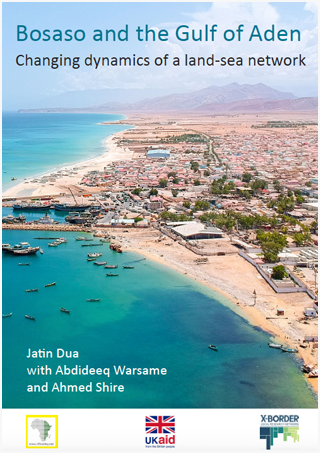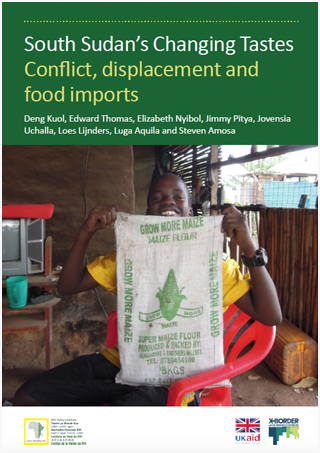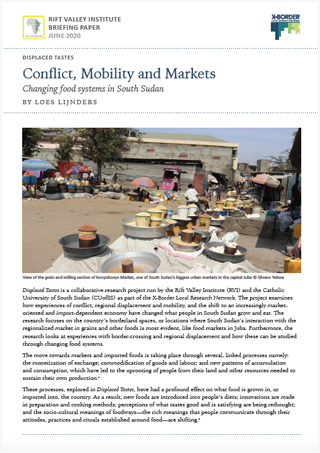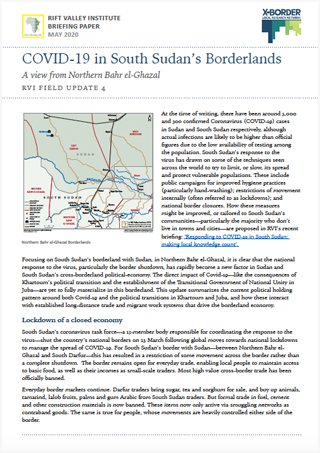In the Horn of Africa there is a dynamic interplay between land and sea that has shaped political, economic and social relationships. Historical and contemporary instances of piracy in the Western Indian Ocean, at different times, precipitated a securitization of…
RVI publishes books, research reports, research papers, briefings and meeting reports in a range of formats. Publications cover policy, research, arts, culture and local knowledge in the countries of eastern and central Africa. Research publications—books, reports and papers—are peer-reviewed. Some RVI publications are also available in French and/or Arabic.
The RVI is a signatory of the Budapest Open Access Initiative (2001); all publications are free for download in PDF format under Creative Commons licences. The views expressed in books and reports published by the RVI are those of the authors, not the Institute.
SEARCH
PUBLICATION TYPE
LANGUAGE
REGION
COUNTRY
In February 2020 Sudan’s president, Salva Kiir, appointed Hussein Abdel Bagi—head of the South Sudan Opposition Alliance—as one of his five vice-presidents. Abdel Bagi is a member of the Malual Dinka community from Madhol, on the Northern Bahr el-Ghazal…
Key points • Hussein Abdel Bagi’s appointment as the third Vice-President of South Sudan is an important building block for the Transitional Government of National Unity (TGoNU), particularly its relations with Khartoum. Hussein’s long experience of Sudanese politics, and…
Breaking Out of the Borderlands is the second report by Dr Nicki Kindersley and Joseph Diing Majok on South Sudan’s changing borderland economy. The first report in the series—Monetized Livelihoods and militarized Labour in South Sudan’s Borderlands—described the protracted…
Displaced Tastes is a research project run by the Rift Valley Institute in partnership with the Catholic University of South Sudan under the X-Border Local Research Network. The project examines the changing tastes for food in South Sudan in…
Summary The sustained movement of people, goods and ideas across the African Red Sea Region has been and continues to be so intense that it binds together communities throughout the region in a unified multifaceted socio-economic system that transcends…
Bosaso and the Gulf of Aden: Changing dynamics of a land-sea network is the second report in a series looking at the relationship between modern-day Puntland, a semi-autonomous region of north-east Somalia, Yemen and the wider Gulf region. It…
South Sudan’s long wars have forced millions of people to leave their own homes, farms and pastures and move to unfamiliar new areas of the countryside, to refugee camps and cities. In the process, they have changed the way…
Displaced Tastes is a collaborative research project run by the Rift Valley Institute (RVI) and the Catholic University of South Sudan (CUofSS) as part of the X-Border Local Research Network. The project examines how experiences of conflict, regional displacement…
Focusing on South Sudan’s borderland with Sudan, in Northern Bahr el-Ghazal, it is clear that the national response to the virus, particularly the border shutdown, has rapidly become a new factor in Sudan and South Sudan’s cross-border political economy….
Recent Publications

Political Economy of Cash and Markets in Sudan
February 27, 2026
The research provides a snapshot of the war in Sudan in the period from February to April 2025. However, the war is dynamic, with political alliances and territorial control changing. The April 2023 conflict between the Sudan Armed Forces (SAF)

Rethinking Ethiopia II: Youth and politics
February 26, 2026
Seminar report Rethinking Ethiopia, a collaborative essay competition initiative between Addis Ababa University’s Institute for Peace and Security Studies (IPSS) and the Rift Valley Institute’s (RVI) Peace Research Facility (PRF), offers a platform for Ethiopian youth to express their ideas

2025 Year in Review
February 16, 2026
The 2025 Year in Review provides an overview of the Rift Valley Institute’s work over the past year across eastern and central Africa. The report highlights RVI’s research and publication outputs, education and training activities, and public forums and convenings,

